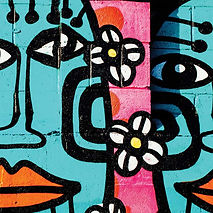Interventions across the globe
Theme leader
Ulrich Schnyder
The basic principles of effective treatments for trauma-related disorders are applicable globally: a therapeutic relationship based on trust and confidentiality, a major focus on the traumatic experience, addressing psychological and physical issues as well as the patient’s social network. Interventions may require cultural adaptations to optimize efficiency in specific cultural settings, see Treatment across cultures.
In addition, the field of traumatic stress research suffers from a lack of treatment outcome studies that are conducted in settings outside the Western world, in places characterized by a combination of low socio-economic resources (including health-care facilities) and a high prevalence of traumatic stress. On this page research is presented on trauma related interventions with collaborators from different areas in the world that try to address this research gap.
Intervention projects on Treatments across cultures focusing on cultural adaptations: here
VR-MIND
Hacking Pain with Virtual Mindfulness and Peer Support for Youth with Childhood Trauma Symptoms
Project leader: Tanya Tandon, University of Fribourg, Fribourg, Switzerland
Project group: Cherine Fahim Marie, University of Fribourg, Switzerland; Rashmi Gupta, Cognitive and Behavioural Neuroscience Laboratory, Indian Institute of Technology Bombay, India; Chantal Martin Soelch, University of Fribourg, Switzerland, Ulrich Schnyder, University of Zurich, Switzerland.
Aims
This project aims to prevent acute, sub-clinical physical pain from transitioning into chronic pain among university students aged 18–25 with a history of childhood adversity. By combining VR-guided mindfulness with student-led peer support, we seek to enhance engagement and improve pain and mental health outcomes across cultures.
Methods
A 4-week randomized controlled trial (RCT) will be conducted at universities in Switzerland and India (N = 200; 100 per country). Students reporting acute, non-clinical physical pain will be randomized into two groups:
(1) VR-based mindfulness + peer support (small student-led groups after each session)
(2) VR-based mindfulness only (control group)
Outcomes include pain intensity (VAS, McGill Pain Questionnaire), mental health (DASS-21), childhood adversity (ACE questionnaire), and adherence (attendance, dropout, qualitative feedback). Data will be collected pre- and post-intervention and analyzed using linear mixed models.
Current Status
We are currently finalizing ethics approvals and preparing recruitment materials. While initial data collection is planned for India and Switzerland, Collaborators are welcome (CAW) from other countries in the future who are interested in testing this culturally adaptive, scalable model.
If interested please contact Tanya Tandon.
Searching for expertise on mental health support for victims of severe intimate partner violence around the world
Project leader: Chris Hoeboer, University of Amsterdam, The Netherlands
Project group: Chris Hoeboer, Federica Nava, Victor Kallen, Miranda Olff
Background
Victims of severe intimate partner are likely to experience mental health complaints such as (complex) posttraumatic stress disorder. However, these victims may be socially isolated and experience difficulties in accessing regular support organizations.
Aims
To enhance our skills and expertise it is our aim to get in touch with, and learn from, initiatives across the world providing mental healthcare support to victims of severe intimate partner violence. We are specifically interested in collaborations between mental healthcare organizations, the police and other support organizations for victims of intimate partner violence and in cross-cultural differences in the treatment and process of establishing contact with these victims.
How to get involved?
Please contact: Chris Hoeboer

Trauma TRAILS
Nature-Based Interventions for Trauma Recovery: A Randomized Controlled Trial on the Efficacy of Hiking with and without Therapeutic Support
(this project is listed under Climate change)
